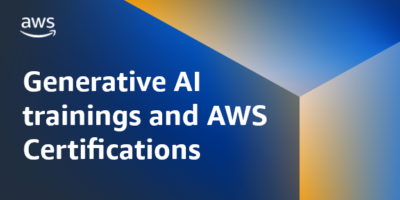AWS Careers
AWS Careers
AWS (Amazon Web Services) is a major player in the world of cloud computing. It offers various career opportunities in a variety of fields. Understanding these roles can help you navigate your career path.
Related AWS Articles
- Mobile App Development on AWS: Amplify
AWS (Amazon Web Services) is a major player in the world of cloud computing. It offers various career opportunities in a variety of fields. Understanding these roles can help you navigate your career path.
AppSync
- Crafting Your Winning Entry-Level AWS Resume

Software developer at work AWS employment opportunities span across different domains. Here are some key roles:
Related AWS Articles
- Mobile App Development on AWS: Amplify
AWS employment opportunities span across different domains. Here are some key roles:
AppSync
- Crafting Your Winning Entry-Level AWS Resume
-
Related AWS Articles
- Mobile App Development on AWS: Amplify
Certain skills are key to succeeding in AWS roles. These generally include technical expertise, experience with cloud services, and familiarity with AWS tools.
AppSync
- Crafting Your Winning Entry-Level AWS Resume
-
Related AWS Articles
- Mobile App Development on AWS: Amplify
Earning AWS certifications adds substantial value to your resume. They validate your expertise and make you more marketable.
AppSync
- Crafting Your Winning Entry-Level AWS Resume
- AWS Certified Solutions Architect – Associate
- AWS Certified Developer – Associate
- AWS Certified SysOps Administrator – Associate
- AWS Certified DevOps Engineer – Professional
Job Search and Career Growth
Benefits of having a career in AWS include high demand and competitive salaries. Leverage job boards, networking events, and social media to find opportunities. Also, regularly check Amazon’s career page for postings.
Related AWS Articles
- Mobile App Development on AWS: Amplify
Benefits of having a career in AWS include high demand and competitive salaries. Leverage job boards, networking events, and social media to find opportunities. Also, regularly check Amazon’s career page for postings.
AppSync
- Crafting Your Winning Entry-Level AWS Resume
- career page for postings.
IAM Basics”,mastering-your-aws-account-unlock-seamless-cloud-success/” style=”color:#0073aa;text-decoration:none;”>AWS Account Setup: Organization
Continual learning is essential. AWS constantly updates its services. Keeping up to date with new releases and improvements is part of the job. Joining user groups and attending conferences can also be valuable for career growth.
Related AWS Articles
- Mobile App Development on AWS: Amplify
Continual learning is essential. AWS constantly updates its services. Keeping up to date with new releases and improvements is part of the job. Joining user groups and attending conferences can also be valuable for career growth.
AppSync
- Crafting Your Winning Entry-Level AWS Resume
-
Related AWS Articles
- Mobile App Development on AWS: Amplify
Working with AWS involves varied daily tasks depending on your role. Solutions Architects may spend much of their time designing systems and meeting with clients. Cloud Developers write and debug code. SysOps Administrators monitor and maintain cloud systems. DevOps Engineers automate processes and ensure smooth deployments.
AppSync
- Crafting Your Winning Entry-Level AWS Resume
-
Related AWS Articles
- Mobile App Development on AWS: Amplify
Typical tools you might use include:
AppSync
- Crafting Your Winning Entry-Level AWS Resume
-
Related AWS Articles
- Mobile App Development on AWS: Amplify
To build your skills and knowledge, utilize these resources:
AppSync
- Crafting Your Winning Entry-Level AWS Resume
- AWS Training and Certification
- AWS Getting Started Resource Center
- AWS Training Portal
- Udemy for AWS-related courses
- edX AWS and cloud courses
Interview Preparation
Preparation is crucial for AWS job interviews. Focus on the fundamentals of cloud computing and AWS services. Practice common interview questions related to cloud architecture, security, and scalability.
Related AWS Articles
- Mobile App Development on AWS: Amplify
Preparation is crucial for AWS job interviews. Focus on the fundamentals of cloud computing and AWS services. Practice common interview questions related to cloud architecture, security, and scalability.
AppSync
- Crafting Your Winning Entry-Level AWS Resume
-
Related AWS Articles
- Mobile App Development on AWS: Amplify
Some tips include:
AppSync
- Crafting Your Winning Entry-Level AWS Resume
-
Related AWS Articles
- Mobile App Development on AWS: Amplify
Aws technology is used in various industries such as healthcare, finance, and entertainment. Understanding real-world applications can enhance your practical knowledge. Here are some examples:
AppSync
- Crafting Your Winning Entry-Level AWS Resume
-
Related AWS Articles
- Mobile App Development on AWS: Amplify
Staying informed about these use cases can also help during interviews and in creating solutions for clients in diverse sectors.
AppSync
- Crafting Your Winning Entry-Level AWS Resume
-
Related AWS Articles
- Mobile App Development on AWS: Amplify
Engaging with the AWS community can provide insights and opportunities for professional development. Consider participating in:
AppSync
- Crafting Your Winning Entry-Level AWS Resume
- AWS User Groups for networking
- AWS Events and Webinars for learning
- Online Forums: Like Reddit, Stack Overflow, and AWS re:Post
- Contributing to AWS projects on GitHub
These platforms allow you to ask questions, share knowledge, and stay updated on the latest trends.
Related AWS Articles
- Mobile App Development on AWS: Amplify
These platforms allow you to ask questions, share knowledge, and stay updated on the latest trends.
AppSync
- Crafting Your Winning Entry-Level AWS Resume
-
Related AWS Articles
- Mobile App Development on AWS: Amplify
An AWS career offers various pathways. You could start as a Developer and move into Solutions Architecture or transition from a SysOps Admin to a DevOps role. The experience you gain in one role often helps in others.
AppSync
- Crafting Your Winning Entry-Level AWS Resume
-
Related AWS Articles
- Mobile App Development on AWS: Amplify
Key to growth are:
AppSync
- Crafting Your Winning Entry-Level AWS Resume
-
Related AWS Articles
- Mobile App Development on AWS: Amplify
Your career path will depend on your interests, skills, and the effort you put into learning and networking.
AppSync
- Crafting Your Winning Entry-Level AWS Resume
-
Related AWS Articles
- Mobile App Development on AWS: Amplify
Pursuing a career in AWS offers numerous opportunities. By understanding the roles, acquiring the necessary skills, and continuously learning, you can build a successful career in this dynamic field. Staying engaged with the community and updated with AWS advancements will help you stay relevant and grow professionally.
AppSync
- Crafting Your Winning Entry-Level AWS Resume
-
Jennifer Walsh
Author & Expert
Senior Cloud Solutions Architect with 12 years of experience in AWS, Azure, and GCP. Jennifer has led enterprise migrations for Fortune 500 companies and holds AWS Solutions Architect Professional and DevOps Engineer certifications. She specializes in serverless architectures, container orchestration, and cloud cost optimization. Previously a senior engineer at AWS Professional Services.
156 ArticlesView All Posts
- Mobile App Development on AWS: Amplify
- Mobile App Development on AWS: Amplify
- Mobile App Development on AWS: Amplify
- Mobile App Development on AWS: Amplify
You Might Also Like
- Mobile App Development on AWS: Amplify
- Mobile App Development on AWS: Amplify
- Mobile App Development on AWS: Amplify
- Mobile App Development on AWS: Amplify
- Mobile App Development on AWS: Amplify
- Mobile App Development on AWS: Amplify
- Mobile App Development on AWS: Amplify
- Mobile App Development on AWS: Amplify
- Mobile App Development on AWS: Amplify
- Mobile App Development on AWS: Amplify



